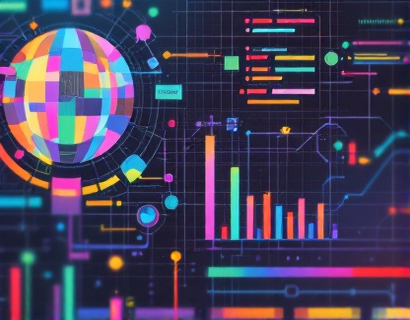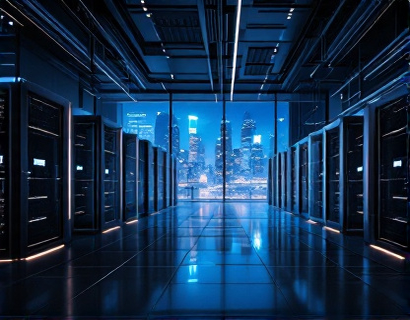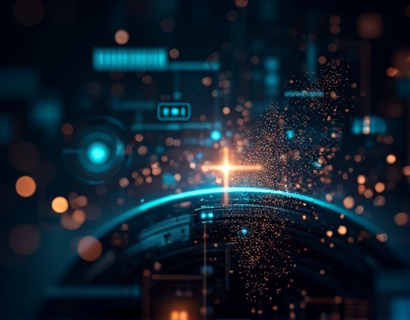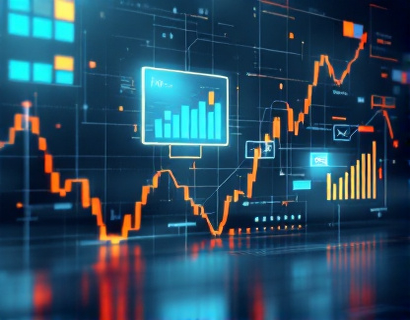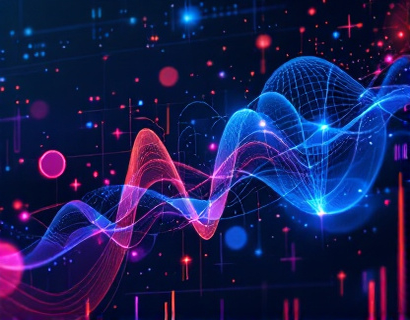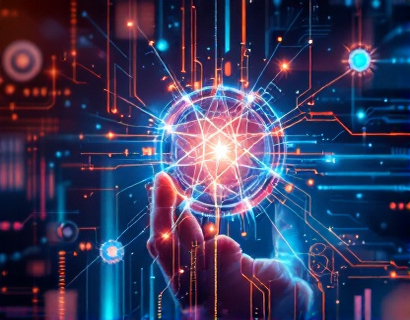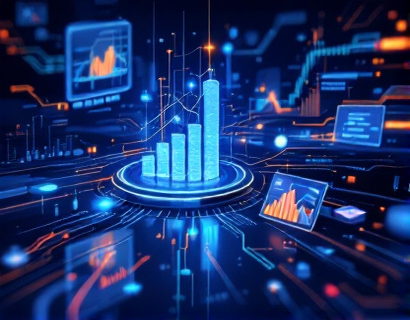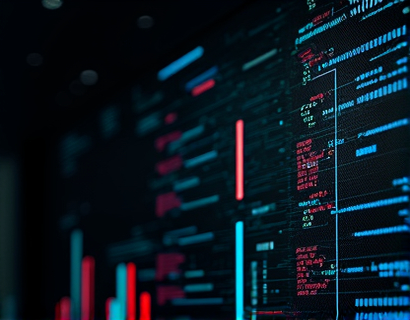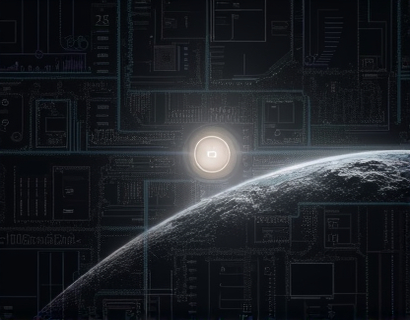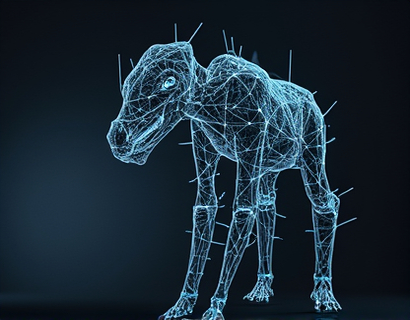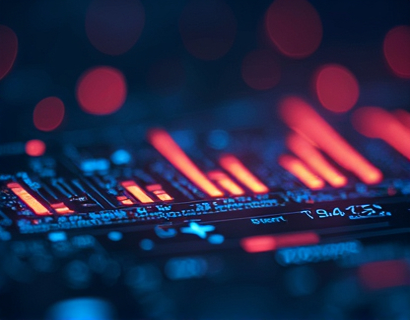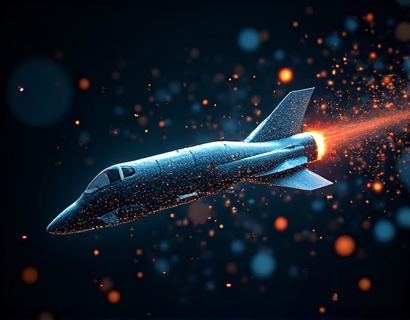Transforming Digital Experiences: The Synergy of AI and Crypto
The intersection of artificial intelligence and cryptocurrency is giving rise to a new era of digital innovation, where blockchain technology and machine learning converge to create transformative applications. This convergence, often referred to as BlockchainAI, is redefining the way we interact with digital services and applications, offering enhanced security, efficiency, and user experiences. As technology continues to evolve, understanding the potential of this synergy is crucial for tech enthusiasts and professionals alike.
Understanding Blockchain and AI
Blockchain technology, at its core, is a decentralized ledger that records transactions across multiple computers in a way that ensures security, transparency, and immutability. It is the foundation of cryptocurrencies like Bitcoin and Ethereum, but its applications extend far beyond digital currencies. AI, on the other hand, involves the simulation of human intelligence processes by machines, particularly computer systems. These processes include learning, reasoning, and self-correction.
When combined, blockchain and AI create a powerful toolset for developing applications that are not only secure and transparent but also intelligent and adaptive. Blockchain provides the infrastructure for trustless and decentralized systems, while AI brings the capability for complex data analysis, pattern recognition, and decision-making.
The Role of Blockchain in Enhancing AI Applications
One of the primary ways blockchain enhances AI applications is through data integrity and security. AI models rely heavily on large datasets, and the quality and authenticity of these datasets are critical for the accuracy and reliability of AI outcomes. Blockchain ensures that data sources are tamper-proof and verifiable, reducing the risk of data manipulation and fraud.
Smart contracts, self-executing contracts with the terms directly written into code, can automate and enforce the rules governing data access and usage. This automation reduces the need for intermediaries, lowering costs and increasing efficiency. For instance, in supply chain management, smart contracts can ensure that data about product origins and movements is accurately recorded and accessible only to authorized parties.
AI-Driven Enhancements to Blockchain Technology
Conversely, AI can significantly enhance blockchain technology by optimizing various aspects of its operation. Machine learning algorithms can be used to improve consensus mechanisms, which are crucial for maintaining the integrity of the blockchain. For example, AI can predict network behavior and optimize resource allocation, reducing energy consumption and increasing transaction speeds.
Another area where AI shines is in fraud detection and security enhancement. AI algorithms can analyze patterns in transaction data to identify and flag suspicious activities in real-time. This proactive approach to security can help prevent cyberattacks and ensure the trustworthiness of blockchain-based systems.
Use Cases of BlockchainAI
The potential applications of BlockchainAI are vast and varied, spanning multiple industries. Here are some key use cases that highlight the transformative power of this synergy:
- Finance: BlockchainAI can revolutionize the financial sector by enabling faster, more secure, and cost-effective transactions. Smart contracts can automate complex financial processes, such as loan agreements and insurance claims, reducing the need for intermediaries and minimizing errors.
- Healthcare: In healthcare, BlockchainAI can enhance patient data management by ensuring the privacy and security of medical records. AI-driven analytics can help in diagnosing diseases more accurately and personalizing treatment plans based on vast amounts of patient data.
- Supply Chain: BlockchainAI can provide end-to-end visibility and traceability in supply chains, ensuring that products are authentic and ethically sourced. AI can optimize logistics and inventory management, reducing costs and improving efficiency.
- Real Estate: The real estate industry can benefit from BlockchainAI by streamlining property transactions and reducing fraud. Smart contracts can automate the transfer of property ownership, and AI can analyze market trends to provide insights for investors and buyers.
- Voting Systems: BlockchainAI can enhance the security and transparency of voting systems, ensuring that votes are counted accurately and securely. AI can also help in detecting and preventing voter fraud.
Challenges and Considerations
While the potential of BlockchainAI is immense, there are several challenges and considerations that need to be addressed:
First, the technical complexity of integrating blockchain and AI requires expertise in both domains. Developers need to understand the intricacies of blockchain protocols and AI algorithms to create robust and efficient applications.
Second, scalability remains a significant challenge. Blockchain networks, especially those using proof-of-work consensus mechanisms, can be slow and energy-intensive. AI algorithms, particularly those requiring extensive data processing, can further strain network resources. Innovations in blockchain scalability, such as layer 2 solutions and sharding, are essential to support AI-driven applications.
Third, regulatory and legal frameworks are still evolving, and the intersection of blockchain and AI adds another layer of complexity. Ensuring compliance with data protection laws, anti-money laundering regulations, and other legal requirements is crucial for the adoption of these technologies.
Future Prospects
The future of BlockchainAI is promising, with ongoing research and development poised to overcome current challenges and unlock new possibilities. As the technology matures, we can expect to see more sophisticated and user-friendly applications that seamlessly integrate blockchain and AI.
One area of focus will be the development of decentralized AI platforms, where AI models can be trained and deployed on a blockchain network, ensuring data privacy and reducing the risk of bias. These platforms can democratize access to AI technologies, allowing smaller organizations and individuals to leverage powerful AI tools without the need for extensive infrastructure.
Another exciting prospect is the integration of blockchain with emerging technologies like the Internet of Things (IoT) and 5G networks. This combination can lead to smarter, more autonomous systems that can make real-time decisions based on vast amounts of data, further enhancing efficiency and convenience in various sectors.
Conclusion
The convergence of AI and blockchain is paving the way for a new generation of digital solutions that are more secure, efficient, and user-centric. By leveraging the strengths of both technologies, we can create applications that not only transform individual experiences but also drive broader societal benefits. As tech enthusiasts and professionals, staying informed about the developments in BlockchainAI is essential for harnessing its full potential and contributing to the next wave of digital innovation.




